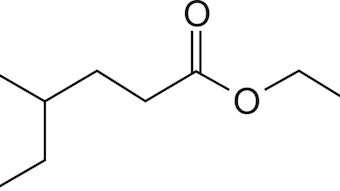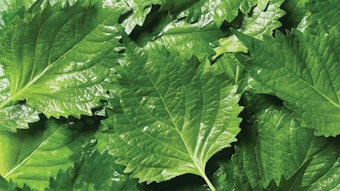The Second Symposium of the Essential Oil Trade Associatlon was held on June 2, 1990, at Brunei University in Uxbridge, England, The topics covered essential oil research and their applications. The symposium was well attended by a diverse group which included perfumers, chemists, botanists, essential oil suppliers and aromatherapists.
Dr. Stanley G. Deans and Dr. Katerina Svoboda from the West of Scotland College presented a joint paper covering their present research and development work on volatile oil crops in Scotland. Their work involves research in antimicrobial and antioxidative properties of essential oils and their constituents that have been grown under organic controlled conditions. They maintain that the drying of plants at specific temperatures affects the quality of essential oil production. Fifty essential oils we currently being studied in detail. The most anti-bacteriocidal oils include thyme, cinnamon, clove, lovage, angelica, nutmeg, pimento leaf, bay and bitter almond oils.
The next speaker was Mike Brook from Hambleden Herbs, which does small scale production of 35 organically grown herbs, as well as importation of organic herbs. Mike made the point that organic cultivation of aromatic plants is virtually non-existent anywhere today. Total organic production in England is less than twenty acres and more than 50% goes to the culinary market. Why does the discrepancy between potential demand and production of organic herbs and oils exist? The “organic” definition in the dictionay states that it is something that contains carbon. Legally the definition means very little. The United Kingdom is trying to come up with a legal definition.










